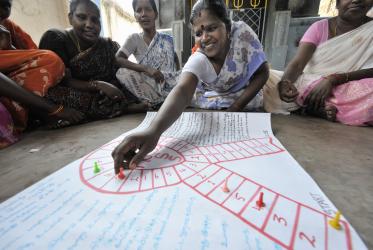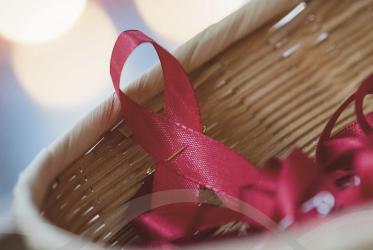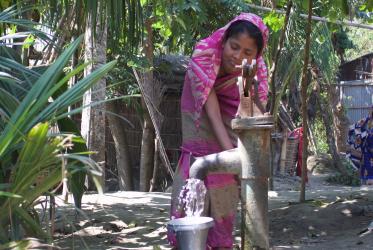Displaying 1 - 20 of 72
WCC Eco-School begins in Crete
15 November 2023
WCC invites all to World AIDS Day prayer service
28 November 2022
WCC mourns passing of Hendrew Lusey-Gekawaku
23 October 2020
Eco-School promotes blue communities, green churches
19 November 2019
WCC Eco-School begins in Thailand
07 November 2019
WCC condemns massacre of farmers in Philippines
12 April 2019
A faith-based, holistic approach to HIV and AIDS-care
13 March 2019
Faith and HIV treatment go hand in hand
06 March 2019
Turning mercy and compassion into action
04 March 2019
On the journey to HIV – bridging gaps, debunking myths
21 February 2019

















